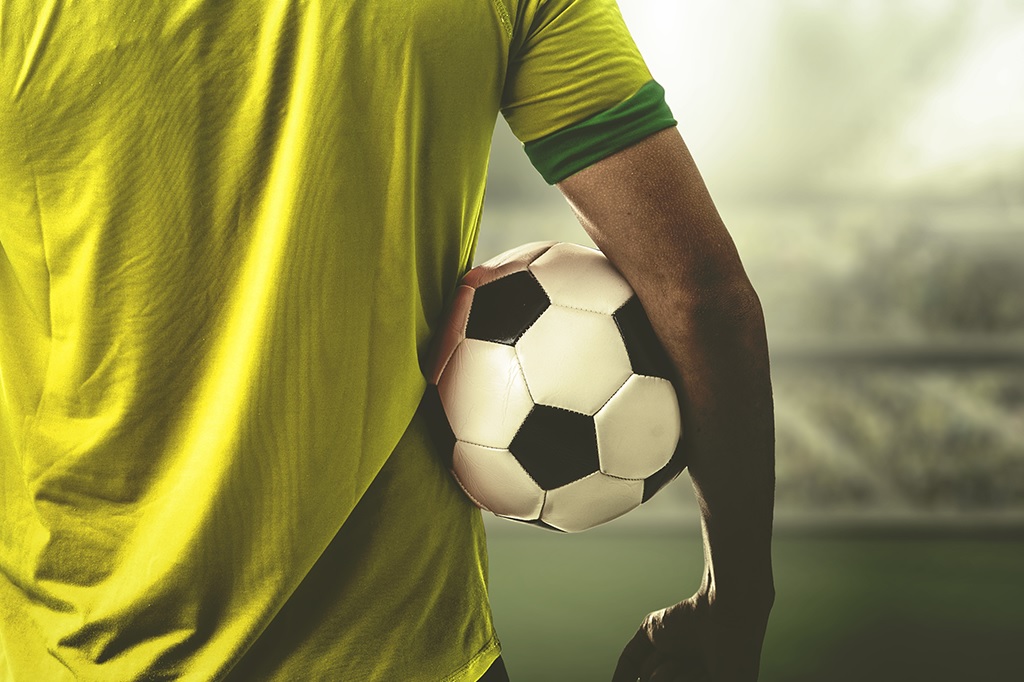RIO DE JANEIRO, BRAZIL – Following the example of Europe, Brazilian soccer is opening up to foreign investment, which could bring several ailing teams back to life and reinforce the South American giant’s dominance of the region’s soccer fields.
So far, two U.S. investors have negotiated the purchase of Botafogo and Vasco de Gama, both from Rio de Janeiro, while others are preparing their landing. In addition, former Brazilian star Ronaldo, who shone in the Old Continent, acquired the club where he made his debut, Cruzeiro, from Belo Horizonte, in the second division.
“With these investments, the tendency is for local soccer management to improve and that usually brings more money and, consequently, greater competitive capacity,” Cesar Grafietti, a partner at the Convocados consulting firm and advisor on this type of operation, told AFP.

The fortunes appeared after the Brazilian Congress approved in August 2021 the Soccer Joint Stock Companies (SAF) law, which provides tax advantages and stimulates the transformation of clubs into companies after operating for a century as non-profit associations.
“Brazilian soccer has always been very closed to outside investment because of the clubs’ national control model,” explains Grafietti.
Before the SAFs, there were only two corporate teams in the elite: Cuiabá, owned by local tire firm Drebor, and Red Bull Bragantino, part of the Austrian multinational sports conglomerate, both teams competing in international tournaments.
WINNING TO BE PROFITABLE
The business is attractive to foreigners because of the depreciation of the real against the dollar and the euro and Brazil’s “raw material”, the leading exporter of soccer players, experts agree.
Also, there is room to commercially exploit soccer fans in a country where 110.4 of the 213 million inhabitants say they are fans of a local team, according to the Ibope Repucom firm.
A market “with great potential” has opened up, says Grafietti.
Vasco and Cruzeiro, both in the second division, and Botafogo, which returned to the A division this year, sought the transformation as a lifeline in the face of economic crises, a widespread problem among Brazilian teams.
Between the three of them, they owed some US$442 million in 2020, according to the consultancy firm Sports Value. The law establishes that the debts must be paid with revenues and profits of the SAFs.
In March, American John Textor, co-owner of English Crystal Palace, Belgian Molenbeek, and known as the guru of virtual reality in Hollywood, purchased 90% of Botafogo’s shares in exchange for some US$77 million in investments over the next three years.
“Soccer is no different from any other business. You have to win to be profitable,” he told CNN before signing Portuguese coach Luís Castro and a dozen players.
After negotiations that some considered disadvantageous for the team, Ronaldo acquired 90% of Cruzeiro, two-time Libertadores champions (1976 and 1997), for an unclear amount.
“We will not rest until we widely implement an efficient, ethical management model that brings sporting success,” said the owner of Real Valladolid, of Spain’s second tier, at the closing of the deal in April. Cruzeiro was discreet in its signings.
The U.S. group 777 Partners, owner of Italian Genoa and part of Spanish Sevilla, is awaiting the decision of Vasco’s directors and partners to confirm the acquisition of 70% of the club for US$135 million.
LANDINGS IN SIGHT
Sports marketing specialist Rafael Zanette believes that “urgency for financial reasons” made the pioneering trio accelerate the operations, but their experience will be helpful to those interested in emulating their path, such as the Coritiba, Atlético Goianiense, or Athletico Paranaense, champion of the Sudamericana-2021.
“In the future, some clubs interested in becoming SAF will be more demanding when it comes to accepting proposals,” he warns.
Bahia, in B, is negotiating with a foreign investor: the City Group, owner of Manchester City, and nine other clubs, according to local media.
The Brasileirão-2021 champion, Atlético Mineiro, does not rule out becoming SAF. But other major clubs such as Flamengo, Corinthians, and Palmeiras are not being seduced, for now.
“Perhaps they will opt for alternatives that do not necessarily involve negotiating with a single owner” to maintain some control, notes Grafietti.
Zanette says that if the new players live up to expectations, the Brazilian teams, winners of four of the last five Libertadores Cups, will widen the gap with their South American peers.
“Latin America must look to the Brazilian market as a reference. That is the way to grow, even to get a little closer to Europe”.
With information from AFP

